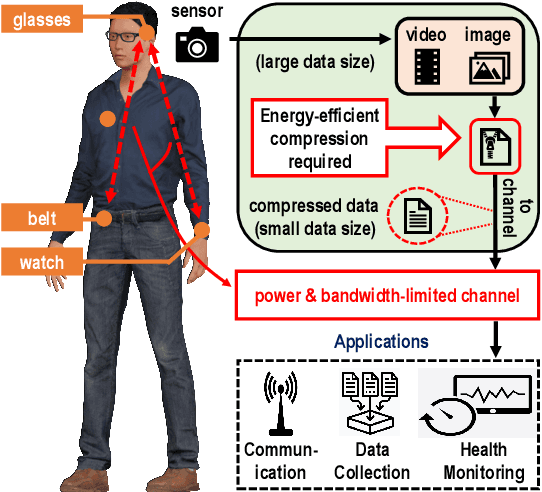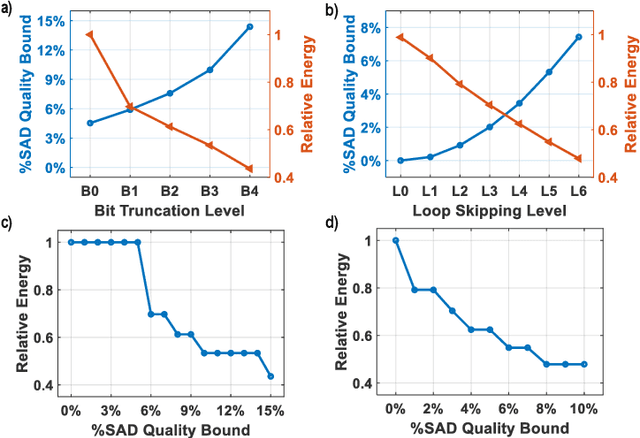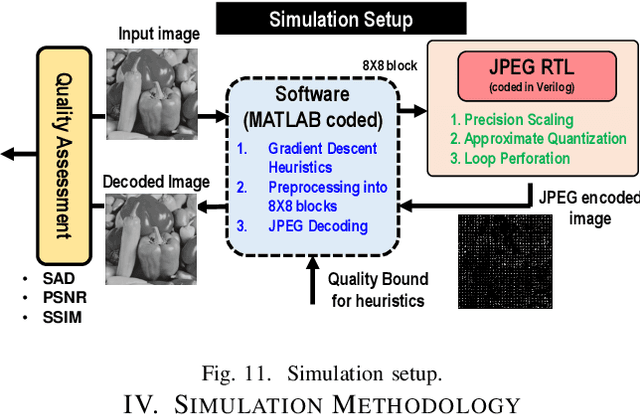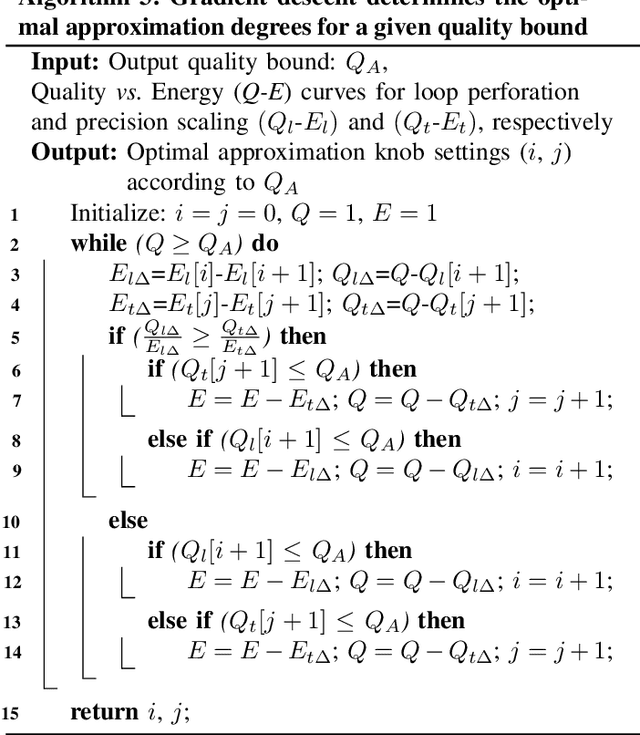Approximate DCT and Quantization Techniques for Energy-Constrained Image Sensors
Paper and Code
Jun 24, 2024



Recent expansions in multimedia devices gather enormous amounts of real-time images for processing and inference. The images are first compressed using compression schemes, like JPEG, to reduce storage costs and power for transmitting the captured data. Due to inherent error resilience and imperceptibility in images, JPEG can be approximated to reduce the required computation power and area. This work demonstrates the first end-to-end approximation computing-based optimization of JPEG hardware using i) an approximate division realized using bit-shift operators to reduce the complexity of the quantization block, ii) loop perforation, and iii) precision scaling on top of a multiplier-less fast DCT architecture to achieve an extremely energy-efficient JPEG compression unit which will be a perfect fit for power/bandwidth-limited scenario. Furthermore, a gradient descent-based heuristic composed of two conventional approximation strategies, i.e., Precision Scaling and Loop Perforation, is implemented for tuning the degree of approximation to trade off energy consumption with the quality degradation of the decoded image. The entire RTL design is coded in Verilog HDL, synthesized, mapped to TSMC 65nm CMOS technology, and simulated using Cadence Spectre Simulator under 25$^{\circ}$\textbf{C}, TT corner. The approximate division approach achieved around $\textbf{28\%}$ reduction in the active design area. The heuristic-based approximation technique combined with accelerator optimization achieves a significant energy reduction of $\textbf{36\%}$ for a minimal image quality degradation of $\textbf{2\%}$ SAD. Simulation results also show that the proposed architecture consumes 15uW at the DCT and quantization stages to compress a colored 480p image at 6fps.
 Add to Chrome
Add to Chrome Add to Firefox
Add to Firefox Add to Edge
Add to Edge